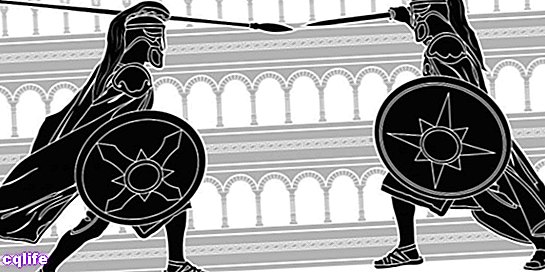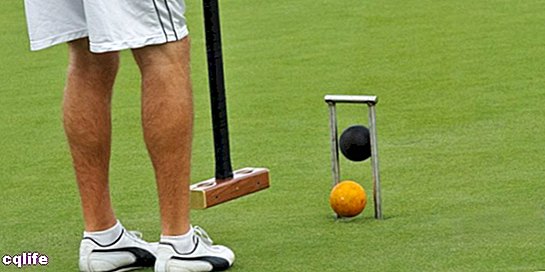- What is sport?
- History of sport
- Sport types
- Olympic Games
- Professionalization of sports
- Sport characteristics
- Importance and benefits of sport
We explain what sport is and what its benefits are. In addition, its origin, the Olympic Games and the professionalization of sport.
Sport is distinguished from physical activity because it is competitive.What is sport?
Sport is a physical activity carried out by a person or group following certain rules and within a physical space determined. It is generally associated withcompetencies formal and serves to improve theHealth physical and mental.
In some cases, sport is institutionalized by sports associations, federations or clubs.
It is common to confuse the terms sport and physical activity or fitness. The difference lies in the competitive nature of the sport; in the case of fitness or physical activity, it is done for personal satisfaction and recreation.
History of sport

There is evidence that indicates that the origin of classic sports dates back to 4000 BC. C. approximately. In ancient Egypt tools, utensils andstructures which are the forerunners of sports that are practiced today, such as the javelin throw and the high jump.
On the other hand, the fight and the marathon have their origin in ancient Greece. The term "marathon" arises thanks to the Greek soldier Filípides, who died of fatigue after traveling 37 kilometers in 490 BC. C. from the Marathon town to thetown of Athens to notify the victory over the Persian army.
The Greek culture gave much importance to sport and created the Olympic Games of antiquity (base of the Olympic Games modern) that developed from 776 BC. until 393 AD
Sport types
- Combat sports. Disciplines in which two opponents fight hand-to-hand based on certain rules. For example: boxing, taekwondo, fencing, judo, karate, kick boxing, wrestling, mixed martial arts, and jiu-jitsu.
- Ball sports. Disciplines in which the essential element is a ball and is played in groups or individually. For example: football, rugby, volleyball, basketball, tennis, paddle tennis, golf, handball, table tennis, squash, cricket, hockey, baseball, billiards and lacrosse.
- sports of Athletics. Disciplines in which competitors are measured in tests of strength, speed, throwing and jumping. For example: running, hurdling, pole vault, high jump, long jump, shot put, javelin throw, discus throw, and hammer throw
- Watersports. They are made on or in the Water. For example: swimming, surfing, rowing, windsurfing, kite surfing, sailing, diving, kayaking, water polo, water skiing, body boarding and rafting.
- sports of Mountain. They take place in mountainous terrain. For example: mountaineering, hiking, skiing, snowboarding, mountain biking, zip-lining, and climbing.
- Motor sports They are carried out on a motorized vehicle. For example: motorsports (formula 1, rally), motorcycling (speed motorcycling, motocross), motorboating and aeronautics.
- Equestrian sports. They are carried out on animals. For example: turf, polo, duck, cross-country, horse riding.
Olympic Games
The Olympic Games are the largest sporting celebration in the world. It is carried out every four years based in a town (which is previously defined by the international sports committee) and brings together athletes from the fivecontinents who participate in the differentdisciplines sports representing their country.
There are the Summer Olympic Games and the Winter Olympic Games that are inspired by the games that were organized in ancient times in Olympia, Greece (8th century BC). The first modern Olympic Games were held in Athens, Greece in 1896.
Currently, competitors from more than 200 countries participate in 46 disciplines, among which are: athletics, basketball, cycling, rowing, soccer, hockey, taekwondo, tennis and volleyball.
Follow on:Olympic Games
Professionalization of sports

The professionalization of sport occurs when the practice of a sport becomes a profession. Athletes are professionals when they dedicate a large portion of time and energy to the practice of a sport in which they compete. Professionalization implies an increase in the intensity and level of training of athletes due to the high level of competitiveness within the different disciplines.
The professionalization process arose, among other factors, due to the expansion of themedia that gave visibility to a greater number of sports and increased leisure time.
Sport constitutes a industry of immense dimensions and its popularity varies according to each culture. For example: baseball and American football are practiced in the United States, cricket in Great Britain and Australia, artistic gymnastics is promoted by the Chinese and Russian states, polo is a typical sport in Argentina.
Thetechnology plays a fundamental role in providingdata to fine tune sports scores. Over time, sports include techniques and technologies such as cameras, more accurate meters and sensors so that activities achieve greater precision, so that there are no doubts about the performance of the participants.
Sport characteristics
- It is regulated: It is carried out based on a set of rules and principles that give foundation to the discipline, and that must be known by everyone who plays the sport and allows it to be practiced in a clear and orderly manner.
- It has a competitive character: Whether individual or group, the sport differs from a simple play because of the competition that occurs between individuals or groups that face each other in order to win.
- Transmit values: Through practice, values such as the I respect, the honesty, the effort, the perseverance, tolerance to frustration, among others.
- Improves the quality of life of those who practice it: Sport contributes to the physical and mental development of those who practice it: it improves physical resistance, regulates blood pressure and reduces stress.
- Encourages social ties: The teamwork generates strong and lasting emotional and social ties that are generated by sharing the practice of a sport.
- It is institutionalized: The federations or associations of each sport regulate the practice, update the rules, organize championships, and promote and give visibility to the discipline.
Importance and benefits of sport
Sport is one of the fundamental practices that an individual carries out to maintain a healthy life, it is usually done for recreational, physical or mental purposes. The practice of at least 30 minutes of sport or physical activity in the day is recommended to:
- Regulate blood pressure
- Reduce body fat
- Prevent diseases
- Correct bone posture
- Build muscle mass
- Download tensions
In addition to being essential for the physical development of individuals, sport has psychological and social benefits:
